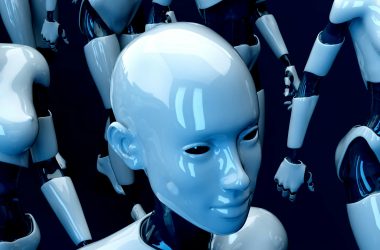Last Updated on: 29th July 2024, 09:21 am
In software development, the integration of Artificial Intelligence (AI) into software testing has emerged as a transformative force. Traditional software testing methods, while effective, often require substantial time, effort, and resources. AI, with its ability to learn, adapt, and predict, is revolutionizing this critical phase of the development lifecycle. By enhancing efficiency and accuracy, AI-driven testing accelerates the development process and significantly improves the final product’s quality.
The Evolution of Software Testing
Software testing has evolved from manual to automated testing, and now to AI-driven testing such as software testing by Testaify. Manual testing, though thorough, is time-consuming and prone to human error. While faster and more reliable, automated testing still requires significant initial setup and maintenance. AI-driven testing represents the next leap, leveraging machine learning algorithms and data analytics to optimize and streamline the testing process.
Enhancing Efficiency with AI
One of the primary benefits of AI in software testing is the substantial increase in efficiency. AI algorithms can quickly identify and prioritize test cases based on historical data and usage patterns, ensuring that critical functionalities are tested first. This prioritization helps in faster identification of potential issues, reducing the time needed for regression testing.
AI also excels in generating test scripts. Traditional automated testing requires testers to write scripts manually, a process that can be both time-consuming and error-prone. AI can analyze the application under test, understand its structure and behavior, and automatically generate test scripts. This not only speeds up the testing process but also ensures comprehensive coverage, as AI can detect and include edge cases that might be overlooked by human testers.
Improving Accuracy with AI
Accuracy is paramount in software testing, as undetected bugs can lead to significant problems post-release. AI enhances accuracy through predictive analytics and anomaly detection. By analyzing vast amounts of data from previous tests, AI can predict where bugs are most likely to occur and focus testing efforts on those areas. This targeted approach ensures that potential issues are identified and resolved before they become critical.
Moreover, AI-driven testing tools are capable of continuous learning. They can adapt to changes in the software environment and update their testing strategies accordingly. This adaptability is crucial in agile development environments, where continuous integration and continuous deployment (CI/CD) pipelines demand constant testing and quick feedback. AI can keep up with the rapid pace of development, ensuring that every iteration is thoroughly tested and any issues are promptly addressed.
Case Study: AI in Action
Consider a large e-commerce platform that serves millions of users globally. Traditional testing methods would struggle to keep up with the frequent updates and feature additions required to stay competitive. By integrating AI into their testing framework, the platform can automatically generate test cases for new features, prioritize critical tests, and predict potential failure points based on historical data. This results in faster release cycles, higher software quality, and a better user experience.
Overcoming Challenges
While the benefits of AI in software testing are clear, there are challenges to its adoption. One significant challenge is the initial investment in AI tools and the expertise required to implement them. However, as AI technology continues to evolve and become more accessible, these barriers are gradually diminishing. Organizations must also address the integration of AI with existing testing frameworks and ensure that their teams are adequately trained to leverage AI capabilities.
Another challenge is the potential for AI to generate false positives or negatives in test results. It is crucial to continuously monitor and fine-tune AI algorithms to ensure their accuracy and reliability. Despite these challenges, the long-term benefits of AI-driven testing far outweigh the initial hurdles, making it a worthwhile investment for forward-thinking organizations.
The Future of AI in Software Testing
The future of AI in software testing is promising, with advancements in machine learning, natural language processing, and data analytics paving the way for even more sophisticated testing solutions. As AI becomes more integrated into the software development lifecycle, we can expect even greater improvements in efficiency, accuracy, and overall software quality.
AI is revolutionizing software testing by enhancing efficiency and accuracy. By leveraging AI-driven testing tools, organizations can accelerate their development processes, reduce costs, and deliver higher-quality software. As the technology continues to advance, the potential for AI to transform software testing will only grow, making it an indispensable tool for the future of software development.









